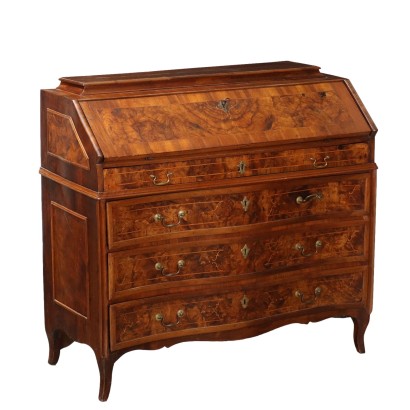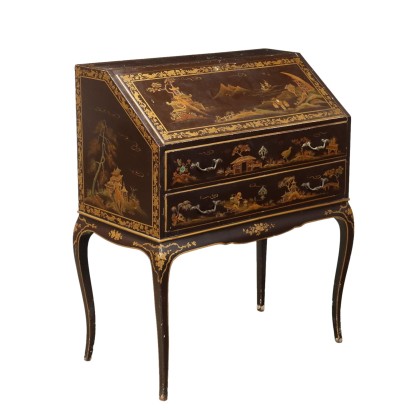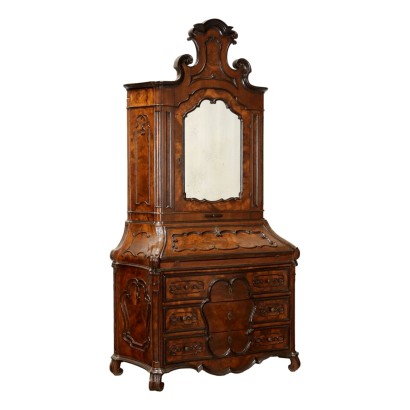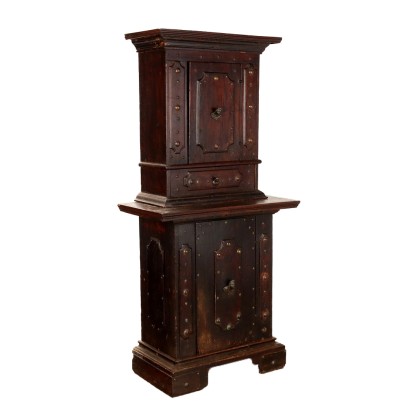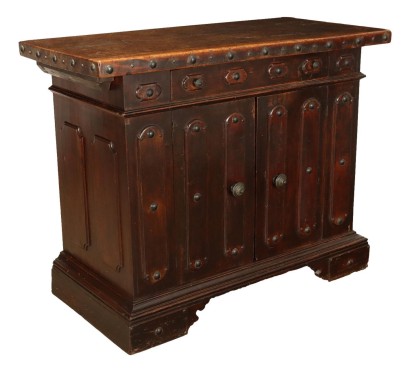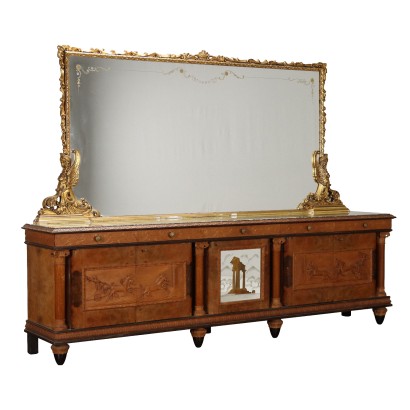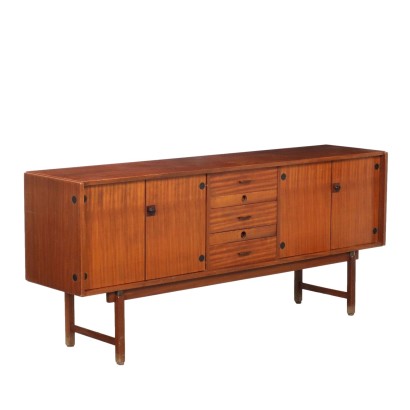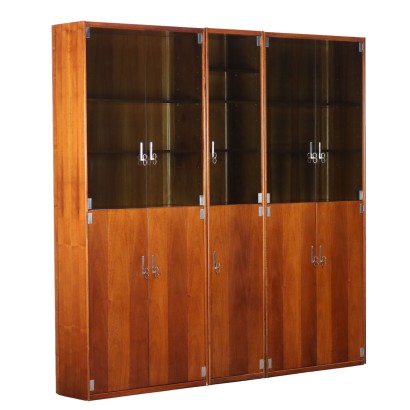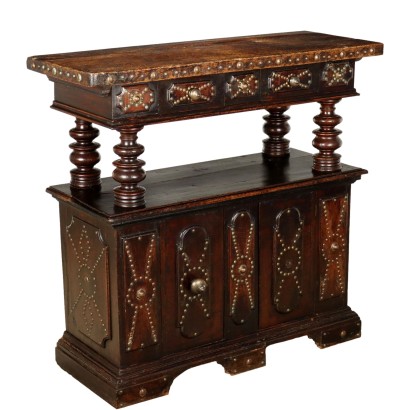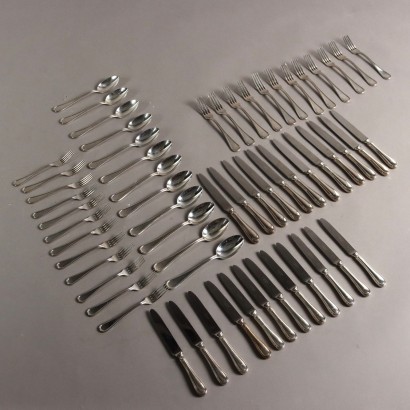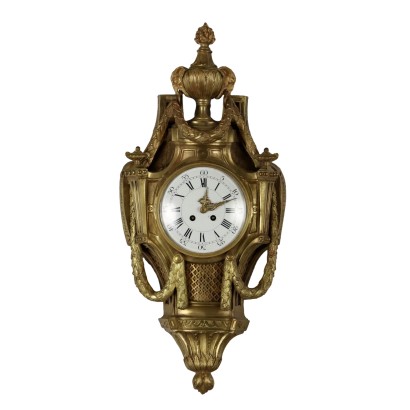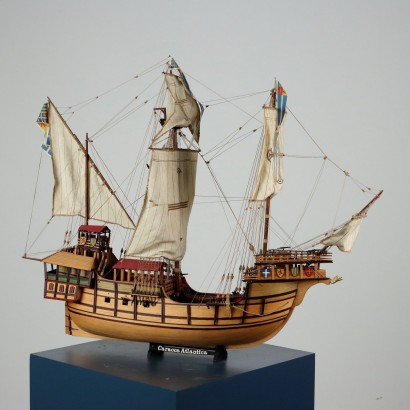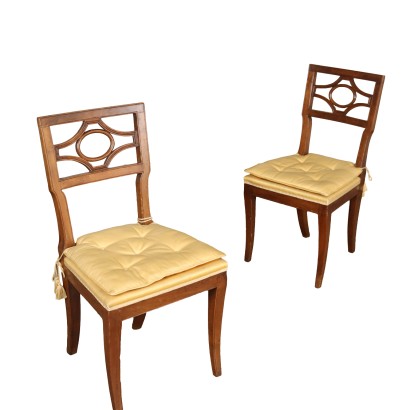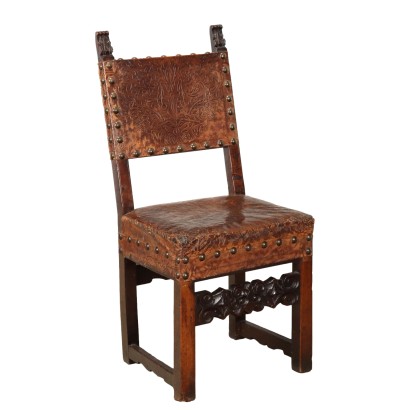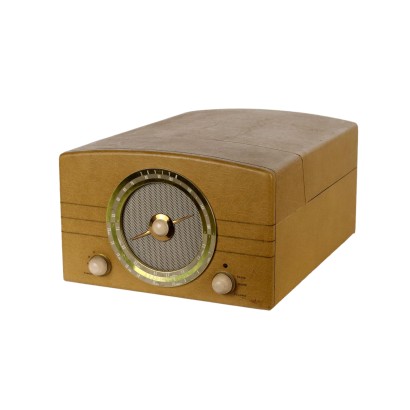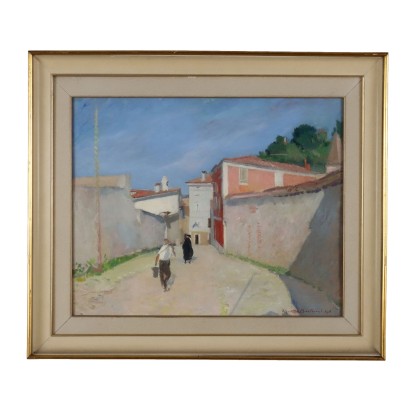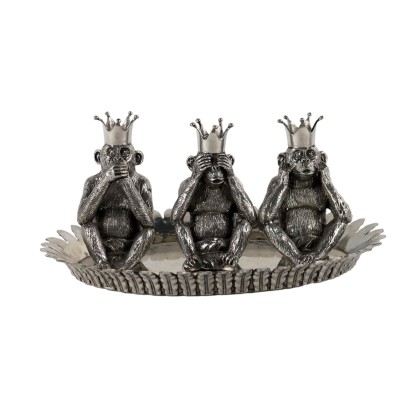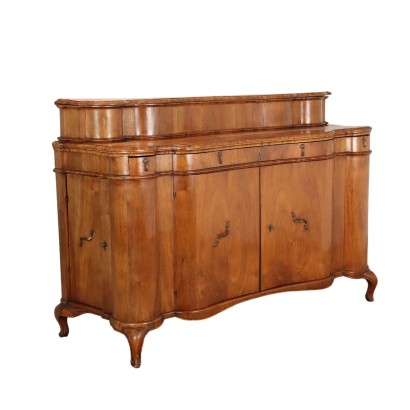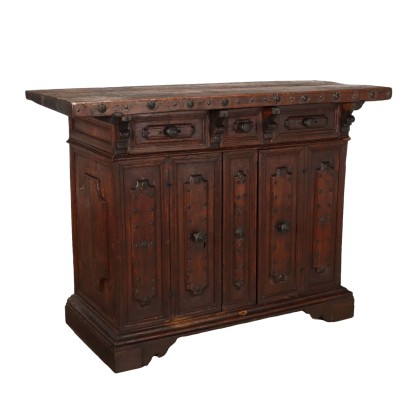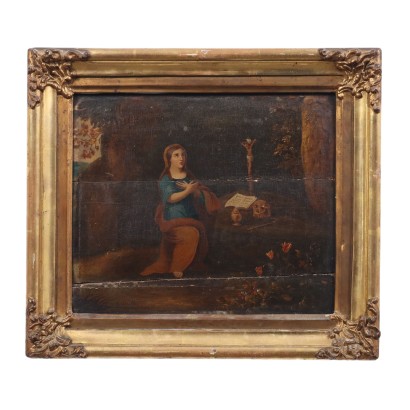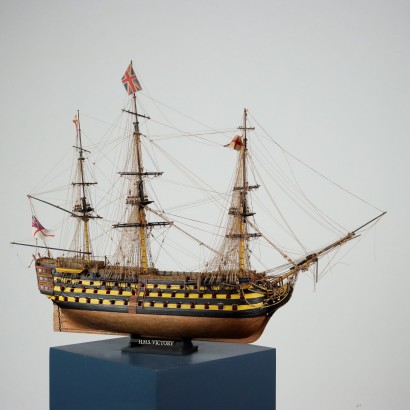Antique Baroque Cabinet Walnut 4 Drawers Italy XVIII Century - Italy, Mid XVIII Century
Features
Italy, Mid XVIII Century
Style: Barocchetto (1720-1770)
Age: 18th Century / 1701 - 1800
Origin: Italy
Main essence: Walnut
Description
Baroque drop-leaf chest supported by wavy feet, on the wavy front it has three drawers plus one smaller one, surmounted by a drop-leaf door concealing a cabinet with small drawers. Veneered in briar with maple fillets, the interiors are in poplar and fir. It has undergone subsequent restorations and modifications: originally it was a trumeau from which the riser was removed.
Product Condition:
Product that due to age and wear requires restoration and polishing. We try to present the real state of the furniture as completely as possible with the photos. If some details are not clear from the photos, what is reported in the description is valid.
Dimensions (cm):
Height: 112
Width: 121
Depth: 52,5
Additional Information
Style: Barocchetto (1720-1770)
This term refers, specifically to furniture, to a part of the production carried out in Italy in the period between the Rococo era and the first phase of neoclassicism.It is characterised by the formal and decorative structure still rigidly in adherence to the dictates dear to the Baroque period (hence the term barocchetto) and to the Louis XIV fashions and yet the new times can be seen in the adoption of smaller volumes, more elegant decorative modules, often directly inspired by French fashion, but always executed with rigorous principles of ornamental symmetry.
The tendency to assimilate formal and volumetric innovations but not to incorporate their ornamental elaboration finds a natural explanation in Italy in the fact that in this century the great aristocracy is experiencing an unstoppable political and economic decline.
If in the previous century there was a great profusion of furnishings intended to decorate recently built homes, to proudly show the power of the commissioning family, in In the 18th century, the focus was on updating the building with only the furniture strictly necessary for the new needs imposed by fashion or functional needs.
The old scenographic apparatus was maintained and the new must not contrast too much.
Find out more about the Barocchetto with our insights:
Classic Monday: discovering the Barocchetto
Classic Monday: between Baroque and Baroque
Classic Monday elegant and unusual with two Baroque balustrades
FineArt: Pair of Late Baroque Chairs, Venice
Emilian chest of drawers, first quarter of the 18th century, early Late Baroque
Urn shelf, Milan, mid-18th century
INSERT ADDITIONAL LINKS:
Classic Monday: The Austrian Taste of Baroque
Classic Monday: Pietro Longhi's Baroque
Classic Monday: The Sculptures of the Italian Baroque
Age: 18th Century / 1701 - 1800
18th Century / 1701 - 1800Main essence: Walnut
Walnut wood comes from the plant whose botanical name is juglans regia , probably originally from the East but very common in Europe. Light or dark brown in color, it is a hard wood with a beautiful grain, widely used in antique furniture. It was the main essence in Italy throughout the Renaissance and later had a good diffusion in Europe, especially in England, until the advent of mahogany. It was used for solid wood furniture and sometimes carvings and inlays, its only big limitation is that it suffers a lot from woodworm. In France it was widely used more than anything else in the provinces. In the second half of the eighteenth century its use decreased significantly because mahogany and other exotic woods were preferred.Other customers have searched:
Ribalte, trumeau, bureau, ribalta con alzata, cassettiera con ribalta, scrittoio, secretaire, stipo..
Dai un'occhiata anche ai nostri approfondimenti sul blog e alle presentazioni dei prodotti FineArt:
Leggi di più
Un cassettone a ribalta, espressione del gusto veronese di pieno Settecento
Secrétaire, il mobile con i nascondigli
Scrittoio a dorso d'asino, Piacenza, metà XVIII secolo
Cassettone a ribalta, Roma, secondo quarto XVIII secolo
Ribalta a urna, Milano metà XVIII secolo
Secrétaire, Bottega Francesco Maggiolini, primo quarto XIX secolo
Secrétaire, “Bottega dei fondi verdi”, inizi XIX secolo
Trumeau con anta a ribalta, Queen Anne, Inghilterra 1705 ca.
Sull'antiquariato in generale dai un'occhiata anche a:
Classic Monday: da un pezzo dei nostri magazzini alla storia dell'antiquariato
L'antiquariato dalla A alla Z: il Dizionario dell'Antiquariato
Il dizionario dell'antiquariato - Lastronatura
Il dizionario dell'antiquariato - Mascherone
Il dizionario dell'antiquariato - Natura morta
Il dizionario dell'antiquariato - Opificio
Il dizionario dell'antiquariato - Pastiglia
Il dizionario dell'antiquariato - Savonarola
Il dizionario dell'antiquariato - Rosone
Intaglio barocco con motivo a ricciolo
Leggi di più
Un cassettone a ribalta, espressione del gusto veronese di pieno SettecentoSecrétaire, il mobile con i nascondigli
Scrittoio a dorso d'asino, Piacenza, metà XVIII secolo
Cassettone a ribalta, Roma, secondo quarto XVIII secolo
Ribalta a urna, Milano metà XVIII secolo
Secrétaire, Bottega Francesco Maggiolini, primo quarto XIX secolo
Secrétaire, “Bottega dei fondi verdi”, inizi XIX secolo
Trumeau con anta a ribalta, Queen Anne, Inghilterra 1705 ca.
Sull'antiquariato in generale dai un'occhiata anche a:
Classic Monday: da un pezzo dei nostri magazzini alla storia dell'antiquariato
L'antiquariato dalla A alla Z: il Dizionario dell'Antiquariato
Il dizionario dell'antiquariato - Lastronatura
Il dizionario dell'antiquariato - Mascherone
Il dizionario dell'antiquariato - Natura morta
Il dizionario dell'antiquariato - Opificio
Il dizionario dell'antiquariato - Pastiglia
Il dizionario dell'antiquariato - Savonarola
Il dizionario dell'antiquariato - Rosone
Intaglio barocco con motivo a ricciolo
Product availability
The product can be seen at Milan
Immediate availability
Ready for delivery within 2 working days from ordering the product.



